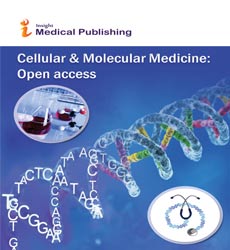Abstract
Nutritional Pharmacology Aspects and Potential Clinical Uses of Clove Essential Oil in the Treatment of Coronavirus infection and Possibility Protect from Coronavirus (COID-19) induced Sudden Death due the Embolism
Nowadays, most of the natural products are processed and developed as potential pharmaconutrient. The majority of antimicrobials of essential oils appear to act either directly on the virus itself on the envelope or during the early stages of virus replication following the internalization of the virus into its host cell. The bioactive components (Pharmaconutrients) of clove essential oil display many pharmacological activities such as antioxidant, antibacterial, antiviral, antifungal, antimutagenic, anti-inflammatory, anti-allergic, and dental caries properties. Besides, their inhibitory effects against multiple viruses including HIV and have also inhibitory effects against certain RNA of the respiratory syncytial virus (RSV), and DNA against enveloped viruses (HSV-1 and Newcastle disease virus). In addition, it has been found that the two phytocompounds, betulinic acid and savinin, which found in the essential oil of cloves have been shown to inhibit post binding entry of severe acute respiratory syndrome (SARS) coronavirus into cells, Cloves act directly upon the virus envelope such as Coronaviruses (COVID-19), which are enveloped viruses. Recently, it has been found that acute pulmonary embolism associated with hypercoagulable state with marked increase levels seen in Creactive protein, and D-Dimer, which considered the main cause of sudden death. It has been shown that the clove lowers the risks for cardiovascular disease clove oil-induced dilate arteries while reducing systemic blood pressure. Besides, it is a potent platelet inhibitor and prevents the formation of a thrombus or a blood clot, this effect is considered an advantage to using clove essential oil for the treatment of coronavirus induced acute pulmonary embolism associated with hypercoagulable leading to sudden death.
Author(s): Abdulrahim Abu Jayyab
Abstract | Full-Text | PDF
Share this

Google scholar citation report
Citations : 187
Cellular & Molecular Medicine: Open access received 187 citations as per google scholar report
Abstracted/Indexed in
- Google Scholar
- China National Knowledge Infrastructure (CNKI)
- Cosmos IF
- Geneva Foundation for Medical Education and Research
- Secret Search Engine Labs
Open Access Journals
- Aquaculture & Veterinary Science
- Chemistry & Chemical Sciences
- Clinical Sciences
- Engineering
- General Science
- Genetics & Molecular Biology
- Health Care & Nursing
- Immunology & Microbiology
- Materials Science
- Mathematics & Physics
- Medical Sciences
- Neurology & Psychiatry
- Oncology & Cancer Science
- Pharmaceutical Sciences

